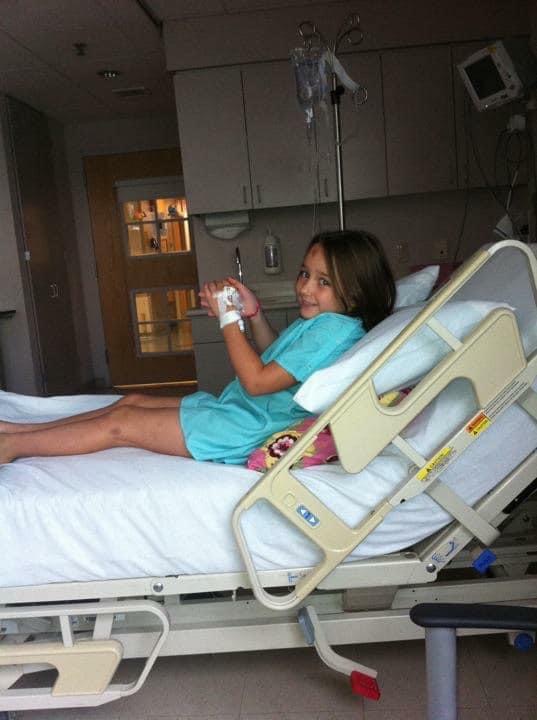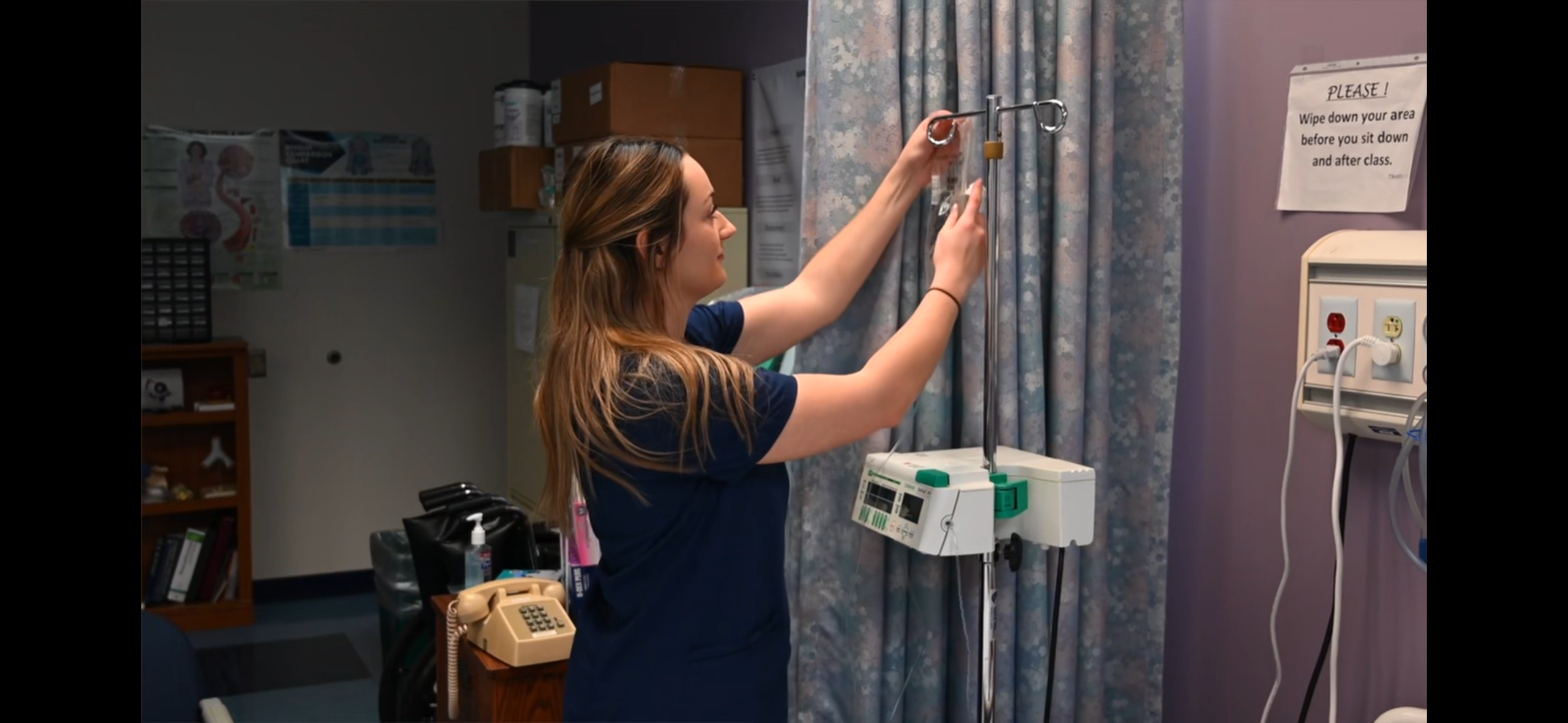Northampton Community College (NCC) nursing student, Chloe Post, was five years old when her life suddenly changed. She was sitting on the couch in her living room when her mother noticed that Post had broken out in rash-like red and purple clusters on her skin, known as petechiae.
When her mother took her to the doctor, they ran some blood tests. The initial concern was leukemia.
“It was hard on my mom because she was a teenager when her and my dad had me. They were both so young trying to navigate having a kid with an issue they couldn’t figure out,” said Post.
After numerous tests, Post’s diagnosis was apparent. With a severely low platelet count, she had an autoimmune disorder called Thrombocytopenia, where her immune system would mistakenly attack platelets and kill them off. That meant that she was at an increased risk of bleeding because of clotting issues. The petechiae rash was a sign of broken blood vessels under the skin.
Post started seeing hematologists to get infusions in an effort to treat her condition. The treatment, intravenous immunoglobulin (IVIG), infused a concentrated collection of antibodies to her system to help manage the condition.
“They had me try so many medications, and I just remember being in elementary school getting pulled out to go do treatments,” Post said, spending days in the hospital until her platelets were at a safe level to return home. “I’d freak out because I’d have separation anxiety from my mom, and the whole thing was so hard.”

Post says what she saw from the nurses at the hospital made her passionate about healthcare. “Pediatric hematology shared a floor with pediatric oncology, so, I was around a lot of cancer patients. These kids were so scared, but the nurses made them smile or laugh and forget what they were facing for a little while. My nurses were equally amazing. I know how it made me feel to have a wonderful staff caring for me, and I wanted to be that for kids one day.”
Finding a Fix
In acute cases, Thrombocytopenia will often go away after six to nine months, but Post’s condition was chronic. When her platelets would rise, it was only a matter of time before they came back down to dangerous levels.
When she was in the fourth grade, doctors decided that removing Post’s spleen would be the best route. The procedure is used to prevent platelets from dropping too low. It was supposed to be a straightforward laparoscopic surgery, but Post began bleeding internally. Doctors were able to fix the bleeding, but her healing time was extended after they made a larger incision during surgery. Post’s family was hopeful that the worst of their daughter’s suffering was behind her.
After the surgery, Post didn’t experience drops in her platelets for four years. Then, in high school, she started experiencing drops again, and it has been that way ever since.
“Sometimes it happens when I get sick, but other times, it's out of nowhere. When my platelets drop, I get tired, and sometimes I know. I’ll start bruising." Post doesn’t have to do IVIG anymore, but instead her doctors prescribe a corticosteroid that will work to stop her immune system from attacking her platelets. “I get ten times the normal dose of steroids, and for about a week it makes my entire body hurt, I get a crazy rash, and I feel emotional and upset. I feel like I have the flu.”
A Path Forward
Still, she perseveres. Encouraged by her mother, Post knew NCC was the right place for her when she applied. “The cost was perfect, and I knew the nursing program was selective. I heard a lot of good things about the program, and I knew there were scholarship opportunities.”

This year, Post received the Northampton County Medical Society Alliance Scholarship, and previously, she was awarded the Vincent J. and Catherine D. Edelman Kratzer Scholarship. She’s grateful that the scholarships allow her to focus on her studies and not financial burden. Post is also a member of the honor society on campus, Phi Theta Kappa (PTK), and president of the Nursing Student Organization (NSO) on Bethlehem campus, whose mission is to serve students and people in the community.
Post has experienced the most frequent drops in her platelets during her time at NCC, which she says has been challenging. “I’m worried when it drops that I’m going to be in class or clinicals, or I'll be driving, get into an accident and die because people don't know how to help me.”
Post openly talks about her mental health struggles in high school. Halfway through her first year at NCC, Post became depressed. “Maturity has helped me see that I must do something about it and not let it get bad like it has in the past. I see a therapist and psychologist,” Post says. “I love what I’m studying, and I don’t want to let anything get in my way.”
Her childhood experiences at the hospital weren’t the only reason Post decided to pursue nursing. As the middle child of 11 step and half siblings, caregiving came naturally to her. “I’m my mom and dad’s only child, but my parents both re-married and had children with their spouses who already had kids. It’s a big family, but it’s always been fun. I’ve enjoyed spending time with my younger siblings and looking out for them. I have a lot of experience with kids, which is a motivating factor for working with kids.”
The Future is Bright
Post is setting herself up for success while she’s at NCC. She completed a summer nursing externship through Lehigh Valley Health Network (LVHN), during which she shadowed and trained with a trauma recovery nurse during her 12-hour shifts. “I formed a relationship with her and was able to do the work hands-on with her direct supervision. This gives me an advantage over my peers because I have that experience in a competitive field,” says Post.
Because of her work with LVHN, Post has been granted the opportunity to pursue her dream career with the hospital, a pediatric registered nurse. She has already been hired, pending her successful completion of the nursing program at NCC. Post plans to earn her bachelor’s in nursing from Penn State University while she works.
“The nursing department has the resources to prepare you for the real world, and the professors are very thorough. Yes, the tests and everything is intensive, but it is that way so you’re very prepared going into NCLEX exams. NCC has such a great pass rate, and I’m not scared that I won’t pass my boards or not graduate,” says Post.
“Everyone here cares, and they want us to succeed. I think all students should know that coming into the college.”